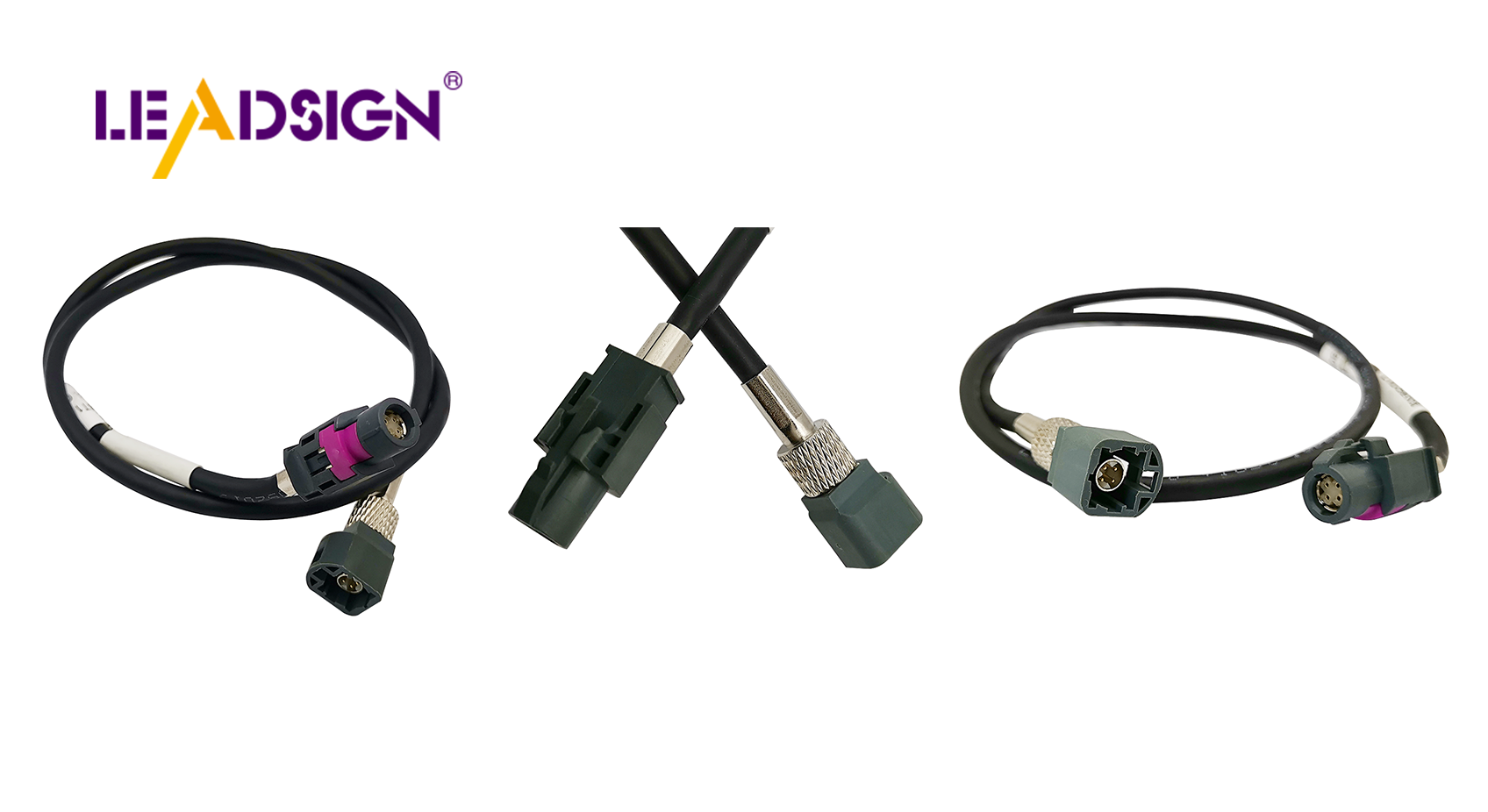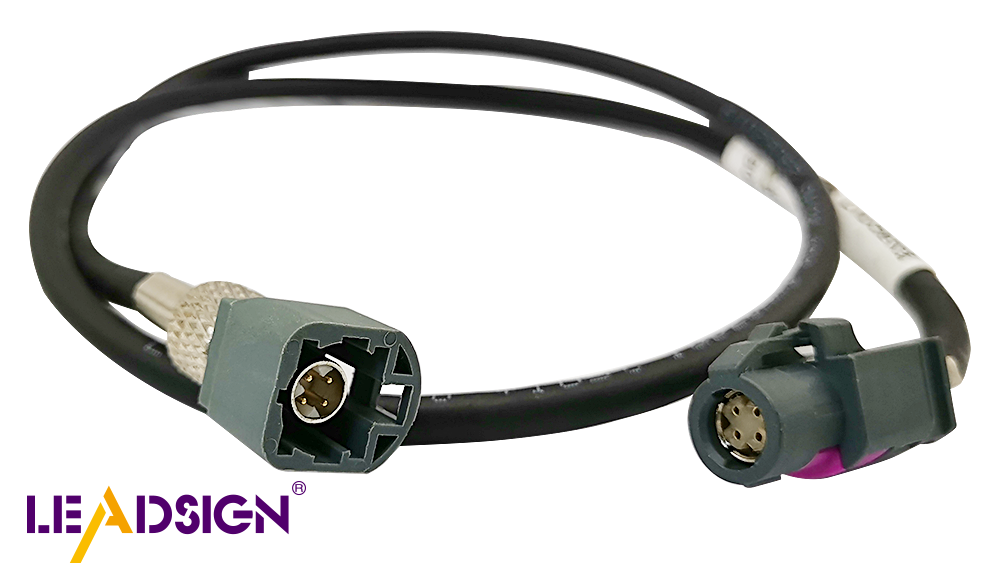Essential Guide to Selecting Reliable Auto Wire Connector Types

Automotive electrical connectors types have evolved significantly in car connector systems over time. As vehicles become more high-tech, the demand for new wiring increases. Selecting the appropriate automotive electrical connectors types is crucial. The global market for these connectors is expanding rapidly and is projected to reach US$117.12 billion by 2028. This emphasizes the significance of choosing the right automotive electrical connectors types for ensuring the safety and efficiency of modern vehicles.
Understanding Car Electrical Connectors
In car electrical systems, connectors are very important. They help your car's circuits talk and share power well. Knowing about different car connectors helps you make smart choices.
Types of Car Electrical Connectors
Blade Connectors
Blade connectors are common in cars. They are easy to use. They have a flat metal piece that fits into a slot. This makes them quick to connect and disconnect, great for frequent checks.
Bullet Connectors
Bullet connectors have a round shape for tight connections. They fit well into sockets, making them reliable. You see these in cars where shaking is an issue. Their design stops accidental unplugging.
Butt Connectors
Butt connectors join two wires together end-to-end. They extend wire lengths or fix broken wires. Put the wire ends in the connector and crimp it tight. This gives a strong link for steady power flow.
Pin Connectors
Pin connectors have pins and sockets. They're used in many car parts because they're small but secure. The pin goes into the socket, making a firm connection, good for tight spaces.
Materials Used in Connectors
The materials of car connectors affect how they work and last:
Copper
Copper is great for connectors because it conducts electricity well, cutting energy loss. It also fights rust, good for tough places.
Aluminum
Aluminum is light and cheap but not as conductive as copper. It's used when weight matters most.
Brass
Brass mixes copper and zinc benefits, offering good conductivity with rust resistance, ideal for strength and flexibility needs.
Plastic
Plastic covers protect metal parts from weather damage; they're light and resist water and chemicals, boosting safety and durability.
Knowing these connector types and materials helps pick the best ones for your car's needs, ensuring they work well over time.
Criteria for Picking Good Connectors
Picking the right car wire connectors is important. It helps your car's electrical system work well. Let's look at what you should think about.
Electrical Performance
Conductivity
You need connectors that let electricity flow easily. Copper is a great choice because it carries electricity well. This means less energy is wasted, which is good for high-power uses. Aluminum is lighter and cheaper but doesn't carry electricity as well as copper. Think about what you need when picking materials.
Resistance
Resistance shows how well connectors handle electricity. Low-resistance materials like copper help by wasting less energy. This makes sure your car works smoothly. Always check resistance levels to fit your car's needs.
Mechanical Properties
Durability
Durability means how long connectors last without breaking down. You want strong connectors that don't wear out fast. Bimetallic ones are tougher than regular ones and resist rust better, lasting longer.
Flexibility
Flexible connectors can bend without breaking, which is important in cars with lots of movement and shaking. Find ones that stay strong under stress for reliable connections everywhere.
Environmental Considerations
Temperature Resistance
Connectors must handle hot and cold temperatures without falling apart. Good materials like copper and special plastics do this well, keeping them stable in different weather conditions.
Corrosion Resistance
Rust can ruin connector performance, so pick ones that resist it, especially in tough places. Copper naturally fights rust, making it a top pick, while plastic covers protect metal parts from damage outside.
By knowing these things, you can choose the best car wire connectors for your vehicle's needs, keeping everything running smoothly for a long time.
Modern Technologies in Connector Systems

Today, new technologies in car connectors change how cars work. These changes make cars better and more reliable. Let's look at two big innovations: smart connectors and wireless connector systems.
Smart Connectors
Smart connectors are a big deal in car tech. They have cool features that make them special.
Features
Embedded Sensors: Smart connectors have sensors inside them. These sensors check the connector's health all the time.
Diagnostic Capabilities: They find problems like damage or rust early on. This helps fix issues before they get worse.
Predictive Maintenance: By showing possible problems, smart connectors help fix things before they break.
Benefits
Reduced Downtime: Smart connectors tell you when to do maintenance early. This means less time fixing your car.
Cost Savings: Stopping failures saves money on repairs.
Enhanced Reliability: With constant checks, your car works better and is more reliable, which is great for businesses with many vehicles.
Scientific Research Findings: Smart connectors are changing the car connector market by making cars perform better and last longer.
Wireless Connector Systems
Wireless connector systems are another big step in car tech. They have special benefits and uses.
Advantages
Elimination of Physical Connections: Wireless systems don't need wires, which makes cars less messy inside.
Flexibility: Without wires, you can change systems easily as needed, which helps with complex electronics in modern cars.
Improved Safety: Fewer wires mean fewer chances for electrical problems, making cars safer overall.
Applications
Telecommunications: Wireless connectors are key in phone networks for fast and reliable links.
Automotive Electronics: In cars, they help with entertainment and navigation systems for smooth connections.
Advanced Automotive Systems: These systems boost high-tech car features for better performance and user experience.
Scientific Research Findings: Using smart-sensor tech in RF connectors can alert phone companies about issues before network failures happen.
By learning about these new technologies, you can see how they help improve car electrical connectors over time, keeping vehicles efficient and ready for what's next.
Choosing the right connectors is key for your car's safety and efficiency. Think about things like material, size, and weather conditions. New tech, like smart and wireless connectors, makes cars work better and need less fixing. Knowing these new features helps you pick what's best for your car. Always go for good quality to make sure everything works well for a long time.
See Also
Exploring the Significance of FAKRA Connectors in Automotive Uses
Understanding the Role of HSD Connectors in Auto Sector
Navigating Ford's FAKRA Connector Technology

